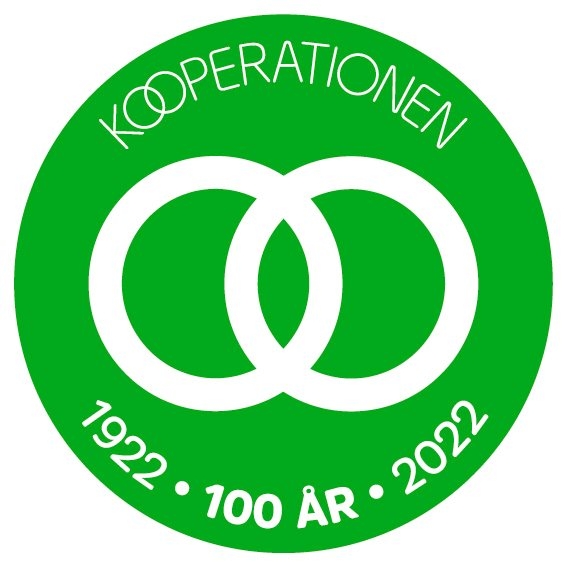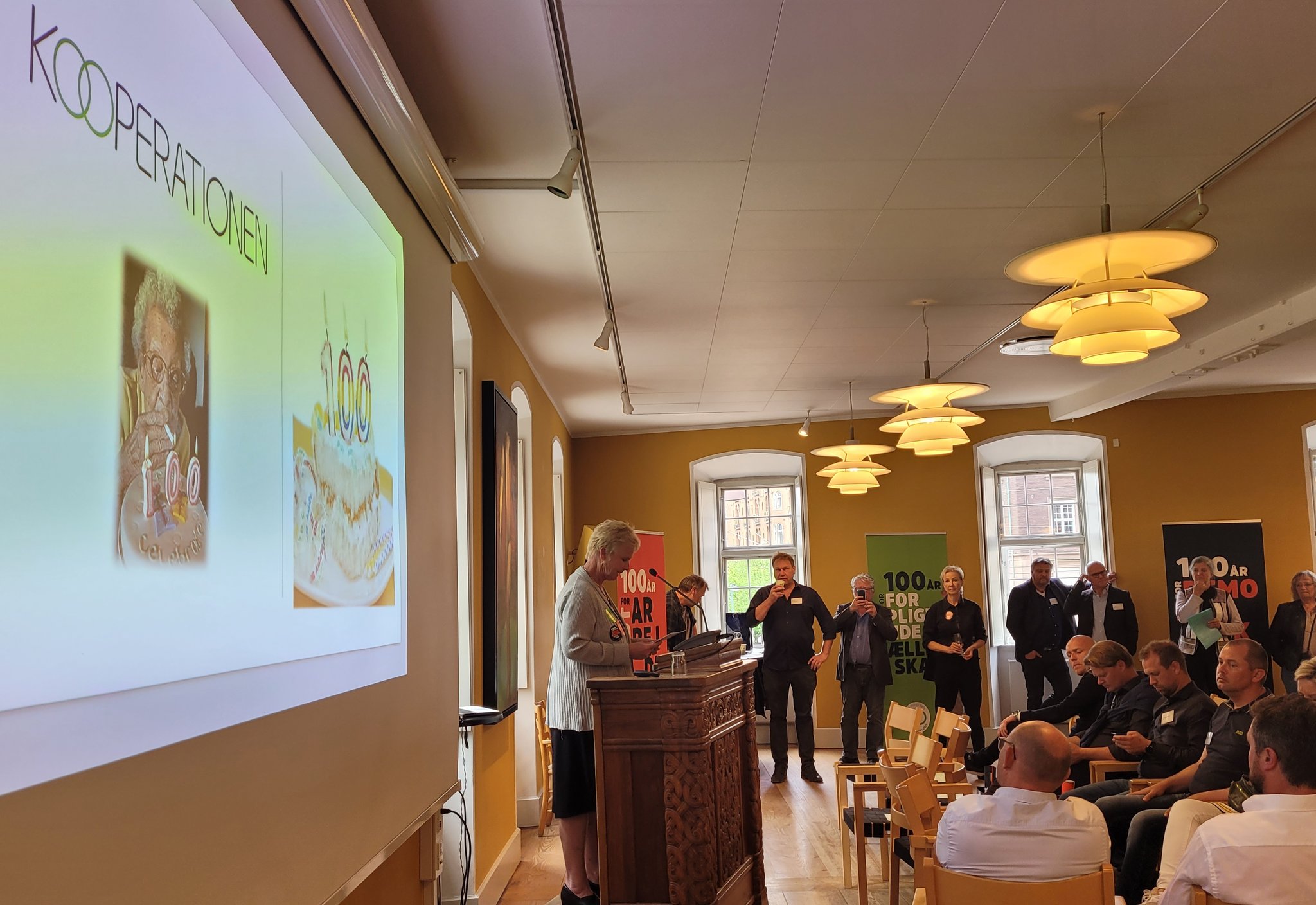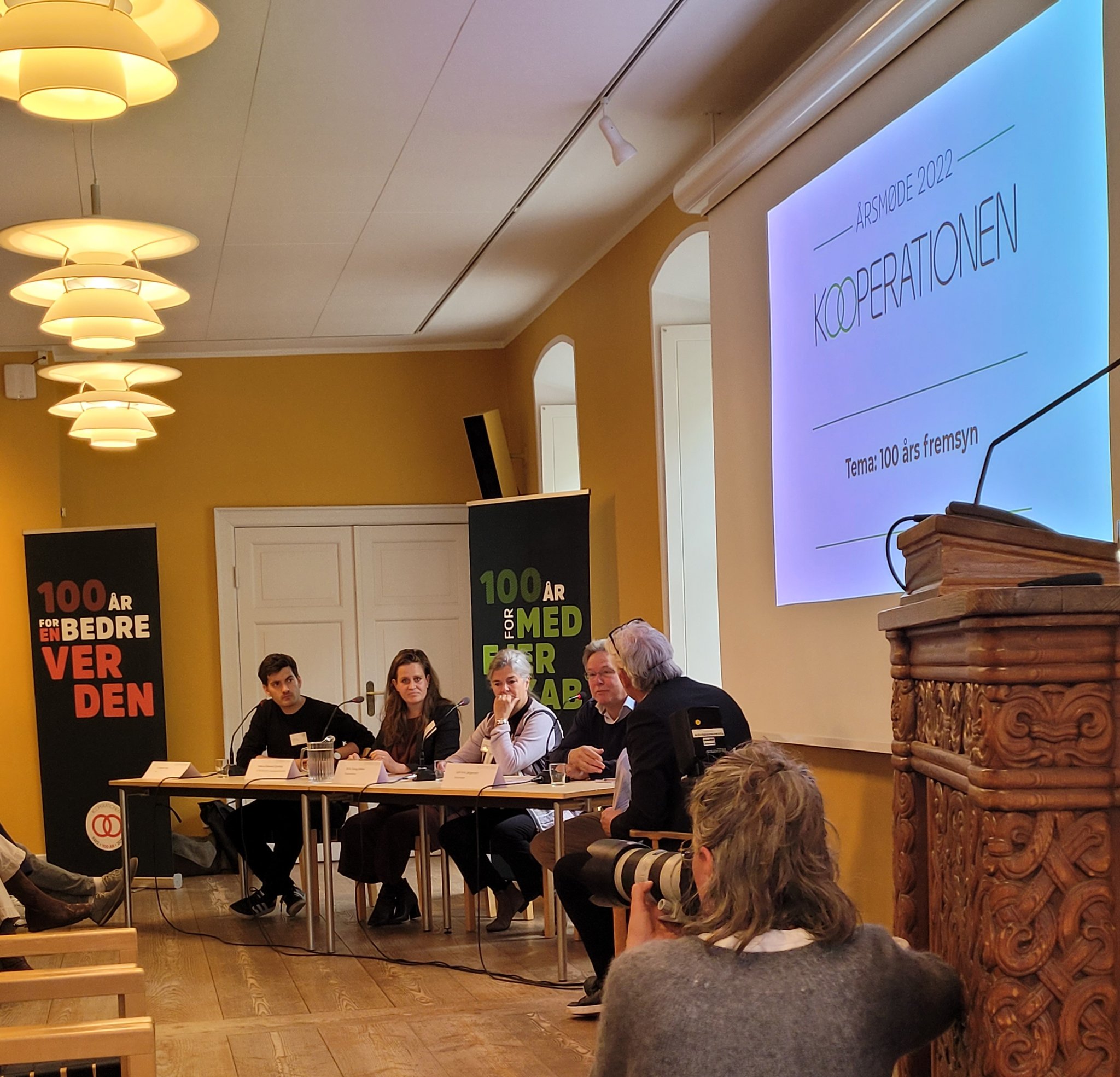
CECOP (C): Susanne, thank you so much for having us on this celebratory occasion for Kooperationen: 100 years of existence in Denmark!
Can you tell us a bit about the history of Kooperationen? How everything started and how Kooperationen became what it is today? Can you tell us the highlights of its evolution and how it has impacted worker and social cooperatives today?
Susanne Westhausen (SW): Hello! Thank you for having me. Regarding our history, the cooperative movement in Denmark started back in the day, when a priest heard about Rochdale coop movement, and the idea spread to Denmark.
It quickly materialized as consumer cooperatives, eventually farmer cooperatives, and later worker cooperatives.
The first worker cooperatives were promoted by trade unions and the Social Democrat Party of Denmark. The Social Democrats saw the need for demonstrative organizations and enterprises that were not centered around capital and profits and saw in cooperatives a new way to do business that could answer that need.
In the 1920’s and 1930’s a wave of new worker coops also rose. After a series of strikes, workers who participated in those strikes were excluded from the job market and got together to form these cooperatives.
To this day, some cooperatives of our network still have the original documents of that period from these founding members. By the 1950’s, there was a cooperative for everything and anything in Denmark, from milk, to bricks, to culture, and banks. The rest is history.
(C): Kooperationen provides professional legal advice and counseling to cooperatives. Is the legal framework supportive of worker and social cooperatives in Denmark? If not, what could change?
(SW): We currently do not have a cooperative law in Denmark. Because of that, we have to construct bylaws, etc., in our members in a way that makes it clear and doable to live and work within the 7 coop principles and on the cooperative values.
It has been challenging, as we have had to work with them to find legal ways, such as foundations, to see how the money can be protected as in an indivisible reserve.
The Danish legislation does not facilitate the “plug and play” creation of new cooperatives; thus, it is not easy to create new cooperatives, but it is possible.
The lack of a law on cooperatives, makes it difficult also to collect data on the existing cooperatives as there is no cooperative categorization as such. This eventually affects the perception of the coop movement in Denmark from the outside, as we can only provide an estimation of data on existing coops.
(C): Then, would you say that there is a need for a coop law?
(SW): Absolutely. We have a ministerial expert-group with representatives from the movement looking at how to level the playing field for new cooperatives, and expert groups that come from cooperatives also contributing with their expertise. It will probably help, but there is still work to be done.
(C): In this challenging context, with the COVID-19 pandemic, the global chain crisis, and the rise in energy costs due to the Ukraine conflict, cooperatives still strive for their resilience and capacity to provide stability and decent work. How are worker and social cooperatives in Denmark facing these challenges? What kind of support could Kooperationen provide to them?
(SW): Our cooperatives are probably facing the exact same challenges as everybody else. At this stage, the coops can keep producing and operating, but overall, they are encountering the same issues.
In the construction sector, for example, we have begun to see that energy prices have gotten so high, that they will probably have shut down for a couple of months and come back again. Of course, them being a worker cooperative means these decisions are taken collectively, workers are protected, and they are able to keep their jobs, hopefully until they can come back.
What can Kooperationen do? We think we can share knowledge as a steppingstone. We have a very clear idea that the green transition on energy is becoming extremely important, and while a lot of energy in Denmark comes from renewable resources, and is cooperatively owned, a big push in this direction is needed.
(C): Another 100 years down the line, how would you imagine the evolution of the cooperative movement in Denmark?
(SW): Having a 100th jubilee and looking back is great!
When thinking about the future, it would be amazing to live another 100 years. We are aware the cooperative landscape is changing, and we see a huge potential to work with new forms of cooperatives such as platforms. We know that platform work is creating precarious working conditions that are now coming to light. Platform coops would be a viable solution for this. With examples such as this one, we are sure we will be able to continue evolving in the future!
(C): Finally, how do you see the relationship with CECOP, and CECOP's work in Europe evolving? What does Kooperationen expect from the European worker and social cooperative movement?
(SW): From where we stand, we perceive that the added value of being part of a European network like CECOP is to be able to share knowledge, good practices, and examples with other cooperatives in Europe. We have seen that a lot of cooperatives in the network go through the same issues and challenges. And learning from each other with countries all over Europe is very enriching. I believe CECOP and Cooperatives Europe, could be doing more in terms of bringing the members together in that sense.
I also believe that overall, in the network, a better emphasis on education and training is needed. Education in schools, coop governance, and coop management are elements that need to be brought into the aulas. Facilitating these meetings with these topics between members would build bridges and reinforce the worker and social cooperative movement across Europe.
(C): Thank you for your time, and we hope Kooperationen enjoys a great jubilee year!









 Employment & Social Inclusion
Employment & Social Inclusion  Entrepreneurship
Entrepreneurship Sustainable Growth
Sustainable Growth 

